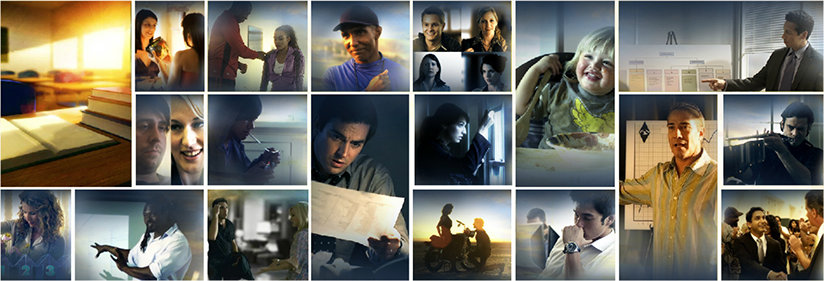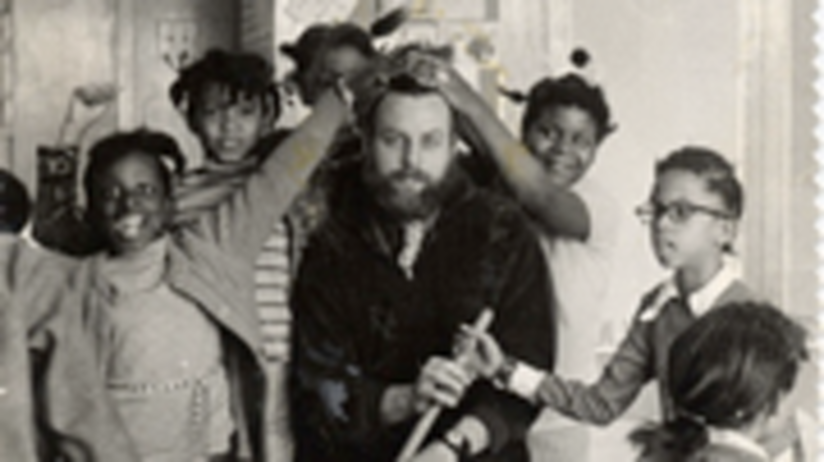
-
HOME
-
WHAT IS STANDOur Mission Our Values Our Help Contact
-
WHAT WE FIGHT FORReligious Freedom Religious Literacy Equality & Human Rights Inclusion & Respect Free Speech Responsible Journalism Corporate Accountability
-
RESOURCESExpert Studies Landmark Decisions White Papers FAQs David Miscavige Religious Freedom Resource Center Freedom of Religion & Human Rights Topic Index Priest-Penitent Privilege Islamophobia
-
HATE MONITORBiased Media Propagandists Hatemongers False Experts Hate Monitor Blog
-
NEWSROOMNews Media Watch Videos Blog
-
TAKE ACTIONCombat Hate & Discrimination Champion Freedom of Religion Demand Accountability
The Brilliance of Scientology
As I once pointed out in a previous blog, L. Ron Hubbard was an engineer.
Now, I can tell you from personal experience that engineers are a different breed. For them, there is no such thing as a mystery. They assume nothing, they believe nothing and they investigate and test everything. They have to know every component, every part and exactly how and why it works. The world of an engineer goes something like this: “If it’s there, it’s there for a reason.” “If it works it works for a reason.”
For most of us, our cell phone is a thing of wonder and mystery. We don’t know how it works, we only know it does. Well, it works because engineers figured out the best materials, exact dimensions for components and necessary power, currents, programs, etc. The knowledge base required to even begin work as an engineer is daunting in its volume and complexity. That cell phone stuck to your face was an undertaking as massive and complex as a rocket launch.
Once you’ve learned some basic Scientology, you can’t un-think it. It will stick with you the rest of your life.
When, as a young engineer, L. Ron Hubbard virtually stumbled into the field of the mind, it became obvious to him that there was a lot of assuming going on by the people working in it. They were still poking around, trying this, trying that with no real, exact, tested map of what they were addressing. He found that the field of the mind had never been properly engineered (or in this case “reverse engineered”).
Much as a mapmakers, scientists, surveyors and geologists follow early explorers, getting the exact dimensions and character of the land being explored, L. Ron Hubbard had to go over a lot of groundwork in this field which had been left unfinished and untested. He had to test many assumptions to see if they were true. Frankly, it was something that only an engineer could have accomplished and Mr. Hubbard himself freely states that the data was all there and any well-trained engineer could have done the job.

What is the point of my saying all this? Well, when he finally finished the basic work, he had an exact picture of what the human mind was, how it worked, and how it correlated to other known scientific disciplines. Learning how it worked, he found out how to make it work better. His discoveries work and they work just as well as your cell phone. And therein lies the the brilliance of Scientology: once you’ve learned some basic Scientology, you can’t un-think it. It will stick with you the rest of your life.
Want some examples? OK. Here goes…

The Emotional Tone Scale: It’s a map of the complete spectrum of emotion. It not only applies to humans but life forms in general. It not only solves the riddle of why you can’t get through to some people, but shows you how to finally get through to them. You can use it to figure out things like who you can and can’t trust and how different people will think and react. I’ve shown it to many people over the years, given them a quick sketch of how it works and found them using it years later. You can use it to solve thousands of problems of human interaction and, when you learn how it works, you can’t not use it.

The ARC Triangle: Understanding is composed of Affinity (degrees of liking or not liking), Reality (what’s either true or agreed upon) and Communication (interchange), and those factors were found to be the exact components of understanding. Understanding anything and anyone. If you improve one of those figurative “corners” of the triangle, the others will improve and understanding increases. If you learn it and play around with it a little, you will use it for the rest of your life and you won’t stop using it.
Study Technology: this is one of the biggest lifesavers in Scientology. If you use this method for studying, the sky is the limit and anyone can use it to learn anything, no matter how smart or dumb they think they are. Once you learn it you will find yourself finally in command of the subject you study, and will never go back to the old, sloppy “robotic-hypnotic” method of prior study again.
I’ve known plenty of people who learned just one or two basic things in Scientology, used them to solve their particular problem, then drifted off quite satisfied. When I met them years later, nearly one-for-one, they were still using it.
For anyone reading this, I double-dog dare you: go grab an actual Scientology book from a library or take a free on-line course. Give an honest effort at learning a basic Scientology tool. I don’t really give a damn if you “join Scientology.” That’s not the point. Scientology is useful and it’s there for anyone to use.
vm_film_tone-scale








